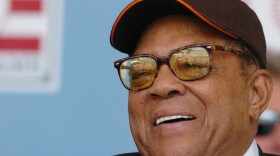NOEL KING, HOST:
The IOC this week announced new, more inclusive guidelines to determine whether elite transgender and intersex athletes are eligible to compete in the Olympics. Advocates for more inclusivity call this a win. Critics say it's a loss for science. Here's NPR's Tom Goldman.
TOM GOLDMAN, BYLINE: The IOC is offering guidance, not rules, based on 10 principles. The first one listed is inclusion, and it says everyone, regardless of their gender identity, expression and-or sex variations, should be able to participate in sports safely and without prejudice. Those are welcome words to Chris Mosier. He's a Team USA transgender male athlete and the founder of transathlete.com.
CHRIS MOSIER: What is great about this is it's really a shift to human rights.
GOLDMAN: But critics say a shift away from science, specifically the science of the male hormone testosterone. In recent years, the IOC has required elite transgender female and intersex athletes to suppress naturally high testosterone levels in order to compete in women's sport. The new guidance changes course. It says there should be no presumption that trans female athletes have a natural advantage over cisgender women, and those are unwelcome words to Joanna Harper. She's a transgender female and a former competitive athlete who now researches transgender sports.
JOANNA HARPER: Look; inclusion is a wonderful thing. However, I don't think that it should come at the cost of denying the obvious fact that testosterone is important in athletic performance.
GOLDMAN: In 2015, Harper published the first paper on transgender athletes, and she helped the IOC craft its earlier policy requiring hormone therapy for trans female athletes. That still could happen since the new guidance leaves it up to individual sports to make their own rules. The IOC plans workshops for sports federations and athletes, starting after the upcoming Winter Olympics in February.
Tom Goldman, NPR News.
(SOUNDBITE OF MUSIC) Transcript provided by NPR, Copyright NPR.





